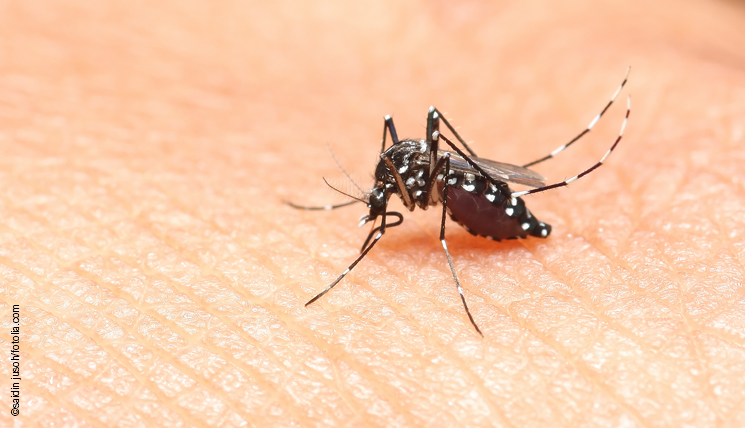This autumn, cases of West Nile virus and Zika virus infections due to transmission by infected mosquitoes have occurred locally for the first time in Germany and France. These cases of locally acquired infections are also named autochthonous cases.
Several infectious agents, some of them just newly identified, have spread globally over the past years, introducing local or even yet unknown diseases into new regions of the world. Viruses transmitted by insects (arthropods), also known as arboviruses, are amongst the most frequent pathogens to cause infectious diseases in humans. Over the past decades, they have turned into an ever-growing problem all over the world. Especially in tropical regions, an increase in epidemics with vector-transmitted viral diseases has been observed. Alongside dengue and chikungunya fever, Zika fever plays an important role, which spread in large parts of the South American continent in 2015/2016. However, even in Europe there are nowadays seasonal infections with arboviruses such as West Nile or chikungunya virus. Besides other reasons, this is due to increasingly warm and long summers. The higher temperatures help the spread of viruses and vectors (mainly mosquitoes) from the tropical areas to the north.
In Germany, one patient with confirmed West Nile virus infection was reported from the region of Leipzig in September, the case being considered the first transmission by local mosquitoes. There followed three further cases in East Germany. Since around 80% of West Nile virus infections proceed asymptomatically and are therefore not diagnosed, Prof. Jonas Schmidt-Chanasit from the Bernhard Nocht Institute for Tropical Medicine assumes according to dpa (German news agency) that many more people in Germany are already affected by the viral infection.
At the end of October, the second case of Zika virus infection in France due to local transmission became known. The patient lives in direct vicinity to the first reported patient. Zika virus is not transmitted by endemic mosquitoes, but tropical yellow fever mosquitoes or tiger mosquitoes of which the latter are nowadays also distributed in Southern and Central Europe. Tiger mosquitoes are also vectors for dengue and chikungunya viruses. Several cases of dengue and chikungunya fever have been reported mainly in Southern France, Portugal and Italy. Spain has also reported an increasing number of autochthonous cases of dengue fever. Furthermore, mid-November, the first cases of sexual transmission of dengue have been reported.
Since the clinical course of arbovirus infections is so similar, the diagnosis cannot be made based on the clinic in most cases. With suspected infection, a targeted diagnostic procedure must be applied.
EUROIMMUN test systems for arbovirus diagnostics are suitable for detecting both acute and past infections. PCR-based tests allow reliable and unambiguous direct pathogen detection based on the viral genome from the first day after onset of symptoms. Detection of viral RNA/DNA or the virus itself, however, only succeeds during the viraemic phase in the first days of the disease. Afterwards, the virus is no longer detectable. Consequently, besides viraemia, serology plays a very important role in the diagnostics and therefore constitutes an excellent supplement to direct detection methods. Specific antibodies can be detected several days after the onset of symptoms. The detection of specific IgM antibodies or a significant increase in the specific IgG titer is evidence of an acute infection. Investigation of travellers returning from affected areas as well as screening of larger population groups in the case of an epidemic are sensible application areas for these tests.
